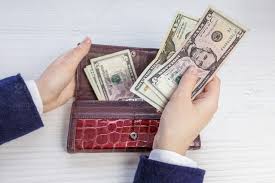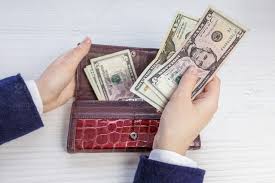
According to a research conducted by the JPMorgan Chase Institute, those Americans who obtained increased unemployment benefits given in the wake of the novel coronavirus pandemic reportedly spent more money compared to what they usually spend when they had jobs. The report also expressed concerns about a steep drop in spending by Americans after the end of the unemployment benefits.
The report claimed that compared to what the unemployed households used to spend prior to the pandemic crisis, they spent 10% more after receiving benefits which included the $600 weekly supplement added to jobless benefits as part of the CARES Act.
Transactions conducted by 61,000 households that had got the unemployment benefits were studied in the research between March and May. The study however found that there was a drop in spending in all households at the beginning of the pandemic because the spread of the virus shutting down businesses and shops. However, as soon as the households started receiving jobless benefits, there was a spurt in household spending.
That trend as very different from a typical recession during which there is usually a spending cut by about 7% by households that that receive unemployment benefits. This is because the regular jobless benefits ads up to account for only a small portion of the prior earnings of an individual m the study said.
The manner in which the United States economy and consumer spending, after the Cvoid-19 pandemic left millions jobless all across the US, is being propped up by the additional unemployment benefits was highlighted in the analysis in the study.
Unemployment benefits were received by more than 30 million Americans, according to estimates. But with the end of the supplemental benefits, which is slated for the end of July, these beneficiaries are expected to be pushed off an income cliff.
"Our estimates suggest that expiration will result in large spending cuts, with potentially negative effects on both households and macroeconomic activity," the researchers wrote.
The financial trouble of households that faced delays in delivery of and collection of the unemployment benefits, as government offices dealing with these benefits across the country were inundated with applications, was also reflected in the study. It said that those households that faced a delay of several weeks for the first unemployment check to arrive were forced to cut down on spending by 20%. Spending recovered after the checks arrived.
(Source:www.business-standard.com)
The report claimed that compared to what the unemployed households used to spend prior to the pandemic crisis, they spent 10% more after receiving benefits which included the $600 weekly supplement added to jobless benefits as part of the CARES Act.
Transactions conducted by 61,000 households that had got the unemployment benefits were studied in the research between March and May. The study however found that there was a drop in spending in all households at the beginning of the pandemic because the spread of the virus shutting down businesses and shops. However, as soon as the households started receiving jobless benefits, there was a spurt in household spending.
That trend as very different from a typical recession during which there is usually a spending cut by about 7% by households that that receive unemployment benefits. This is because the regular jobless benefits ads up to account for only a small portion of the prior earnings of an individual m the study said.
The manner in which the United States economy and consumer spending, after the Cvoid-19 pandemic left millions jobless all across the US, is being propped up by the additional unemployment benefits was highlighted in the analysis in the study.
Unemployment benefits were received by more than 30 million Americans, according to estimates. But with the end of the supplemental benefits, which is slated for the end of July, these beneficiaries are expected to be pushed off an income cliff.
"Our estimates suggest that expiration will result in large spending cuts, with potentially negative effects on both households and macroeconomic activity," the researchers wrote.
The financial trouble of households that faced delays in delivery of and collection of the unemployment benefits, as government offices dealing with these benefits across the country were inundated with applications, was also reflected in the study. It said that those households that faced a delay of several weeks for the first unemployment check to arrive were forced to cut down on spending by 20%. Spending recovered after the checks arrived.
(Source:www.business-standard.com)





